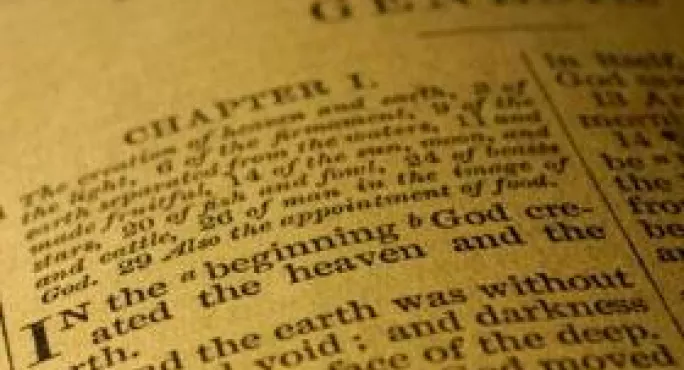God and science

A third of science teachers believe a divine being had a role in the creation of humanity, a study shows.
The finding adds a further twist to the row over how creationism should be discussed in schools after the Professor Michael Reiss was forced to resign as director of education at the Royal Society. He suggested this week that creationism should be discussed alongside evolution in science lessons.
The research by Pam Hanley, an education academic at Southampton University, shows that many science teachers agree it is essential to discuss religious beliefs about the origin of life in the classroom.
She interviewed 66 science and RE teachers. A third of science teachers said that a divine being was responsible for the development of human beings. But one in five RE staff did not believe so. One science teacher said that “human beings were created by a divine being pretty much in their present form”.
David Wilkinson, theologian at Durham University and a trained astrophysicist, insisted that a belief in God was compatible with scientific knowledge. “I think God is the one who sustains the universe through the laws of physics,” he said. “Often science is so beautiful, elegant and compelling that people are drawn to that kind of belief.
“Science and religion ask difficult questions of each other. But these questions are always enriching, rather than incompatible.”
By contrast, half the science teachers told Ms Hanley they did not believe God was involved in the creation process.
One said: “There is no science in religious beliefs.” Another added: “Science is a factual subject, not a subject about opinions and personal beliefs.”
Most of the teachers who spoke to Ms Hanley expressed the need for balance and for accommodating a range of views. One science teacher said: “I would like students to respect and understand religious beliefs, and I would like those with belief to understand the importance of their beliefs, without the necessity for them to be scientific.”
Derek Bell, chief executive of the Association for Science Education, argued that a belief in divine creation could present problems in the classroom. “Yes, you can teach evolution if you believe in a divine being,” he said. “But you must be very clear about what is science and what is not.
“As a scientist, you may have the luxury of simply saying, `We will have no truck with this’,” he said. “But as a teacher, you cannot ignore students if they ask you questions. You have to respond in an appropriate manner.”
Ms Hanley also spoke to 30 pupils from an inner-London secondary serving a largely Muslim catchment area. The majority believed God created the world; all but two said God had created humans in their present form.
One said: “Other explanations of how life came onto earth are Big Bang, evolution. But I don’t really agree with those.”
Research published last year by academics from Anglia Ruskin and Brunel universities suggested that around half of British science teachers had encountered a creatonist challenge to evolution from a pupil.
And Professor Reiss had argued that as many as one in 10 pupils came from families who believed in creationism.
Alistair McBay, of the National Secular Society, said: “The problem is that we have children who come into school who already have the answer to the mystery of the universe: God did it,” he said. “They’re not willing to look at alternatives,”
James Williams, a lecturer in science education at Sussex University, said that Ms Hanley’s research was crucial in order to reveal how many teachers share their beliefs.
“There’s no point in saying that it is not like America here if we don’t know how many teachers are teaching creationism,” he said.
pmh@soton.ac.uk IN THE BEGINNING . How do you think humanity came into being? No divine being involved: 50% science teachers; 20% RE teachers A divine being played a role: 33% science teachers; 60% RE teachers A divine being created humans almost exactly as they are today: 3% science teachers; 7% RE teachers How important is it to cover religious beliefs about the origin of life in the classroom? Essential: 28% science teachers; 37% RE teachers Not at all important: 17% science teachers; 7% RE teachers How controversial do you think this topic is? Very controversial: 12% science teachers; 4% RE teachers Not at all controversial: 21% science teachers 33% RE teachers Proportion with no religious belief: 32% science teachers 4% RE teachers Source: Pam Hanley’s resreach.
Keep reading for just £1 per month
You've reached your limit of free articles this month. Subscribe for £1 per month for three months and get:
- Unlimited access to all Tes magazine content
- Exclusive subscriber-only stories
- Award-winning email newsletters



